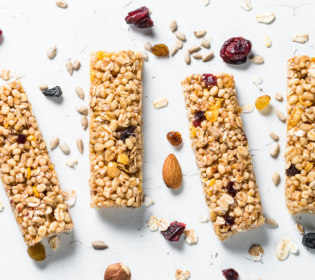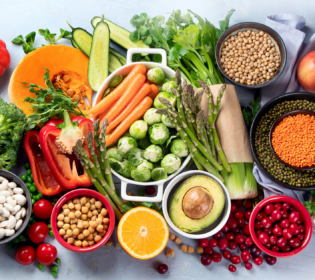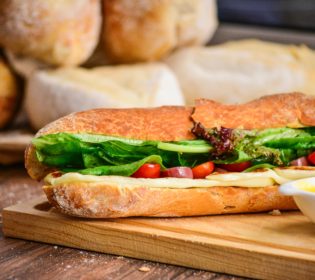Three Ways to Introduce Sustainable Food Trends into Your Restaurant
Sustainability is at the forefront of everyone’s minds, from the restaurant industry to the home kitchen. As April is Earth Month, Wholesale Club wanted to focus on current trends that can be used to not only stay relevant but also ensure you have more eco-conscious practices in place in your kitchen to help protect and heal our planet.
Making changes can be a nerve-wracking task – often we are satisfied by following the norm, especially in the kitchen, a place of tradition. However, taking advantage of sustainable practices will ease your conscience and make a lasting impact on the planet, while also encouraging your restaurant’s growth. By staying on-trend you are keeping relevant with your customers, and following sustainable practices can help maintain stable purchasing habits.
Food trends are often brushed off as short-term goals, but sustainability will last for years to come. Customers are looking for restaurants that are working to help the environment and are more likely to visit restaurants that share their values.
From packaging to purchasing, there are several different tools to utilize this trend in your restaurant. Consider implementing at least one of these practices into your business and see how encouraging sustainability can help both you and the planet.
Eco-Friendly Packaging
 26% of consumers plan on ordering more delivery and takeout than they did last year. With these increases in takeout demand, it’s important to utilize more sustainable packaging in your restaurant.
26% of consumers plan on ordering more delivery and takeout than they did last year. With these increases in takeout demand, it’s important to utilize more sustainable packaging in your restaurant.
Large restaurant chains have been introducing eco-friendly packaging for years now to lessen their carbon footprint, but with an increase in demand, it’s time for restaurants of all sizes to use more eco-conscious packaging.
A&W is introducing the concept of a zero-waste cup, a fully compostable, sustainably sourced cup that leaves little impact on the environment. With ideas like these already coming to fruition, it’s only a matter of time before we see the elimination of single-use packaging that is meant to be thrown away.
While 2022 promises ideas like edible packaging from materials like seaweed or rice paper, there are currently other options such as cardboard and bioplastics that can be used.
Wholesale Club offers compostable and recyclable takeout containers, cups, and flatware, all made from renewable resources.
Meatless Options
 Flexitarian diets – a diet that consciously reduces the intake of meat-based proteins while increasing plant-based proteins without committing to vegetarianism or veganism – were a major trend in 2021. This flexitarian trend is continuing in 2022, encouraging people to try more sustainable eating habits.
Flexitarian diets – a diet that consciously reduces the intake of meat-based proteins while increasing plant-based proteins without committing to vegetarianism or veganism – were a major trend in 2021. This flexitarian trend is continuing in 2022, encouraging people to try more sustainable eating habits.
Food accounts for 10-30% of a household’s carbon footprint, and people can decrease that amount by choosing meatless products. Cattle, sheep, and other animals produce a large amount of methane gas, which means they have a larger impact on the environment than products like Beyond Meat burgers do since alternative meats are made of proteins composed of peas or other legumes.
Animal proteins have also been scientifically proven to have large impacts on our planet, due to large consumption of water and land, contributions to massive amounts of nitrogen and phosphorous fertilizers, and the lack of biodiversity in meat.
Retail sales for meat alternatives increased by 25% from May 2020 to 2021, and more than half of Canadians are choosing meat alternatives, with one in five claiming to eat them a few times a week. Restaurants that offer alternative proteins like Beyond Meat burgers, meatless meatballs, or chick’n tenders open themselves to increased sales from customers who are looking to reduce their impact and try new proteins.
Reducing Food Waste
According to The Economist, “If International food waste were a country, it would be the third leading cause to GHG emissions behind the US & China.” Understandably, Forbes has listed that addressing zero-waste is an upcoming trend in food sustainability for 2022.
Some areas, like California, are addressing this issue by implementing legislation to move towards separating organic materials and increasing composting.
But how can you make adjustments to reduce food waste in your restaurant?
 Being Food Conscious
Being Food Conscious
Being conscious of where food waste is going and utilizing compost programs at your restaurant can assist in making sure all parts of ingredients are being used. Restaurants can also use companies such as Flashfood to get less expensive ingredients that are close to their expiration date, saving you money and helping to reduce food waste.
Order or Purchase Ingredients Strategically
Implementing appropriate purchasing methods when ordering ingredients can also assure that you avoid food waste. Purchasing only what you need when you need it assures that you only have the product necessary and aren’t storing possible wasteful ingredients. Ordering high-cost items like meats once every two to three days instead of once a week makes sure that you only buy what you need, and don’t have to store products in the fridge or freezer that can go bad.
Wholesale Club allows you to make online purchases that can be delivered when you need them, making processes like these easy.
The Waste List
Consider creating a waste list, the opposite of a grocery list, to see what ingredients you’re spoiling out and assist in understanding where you need to adjust your purchasing. A waste list can be shocking at first but is a fantastic investment in understanding where you can save money and manage food waste effectively.
Bargain Hunting & Bulk Buying
Consider using specials for the week to get rid of extra products, or take advantage of sales on bulk items such as the offers found in the Club Flyer. Offering an exclusive recipe for customers adds a sense of interest and urgency, while also making sure you use all your product and don’t have to throw anything away.
We’re Here to Help!
Consider implementing one of these practices into your restaurant this month. Try opting for a compostable takeout container or introducing a meatless option onto your menu. Add something new to your Wholesale Club shopping list today to make a difference.























